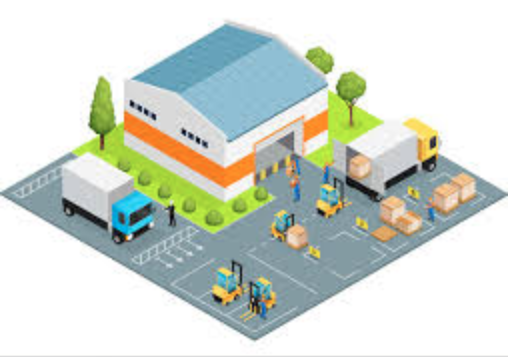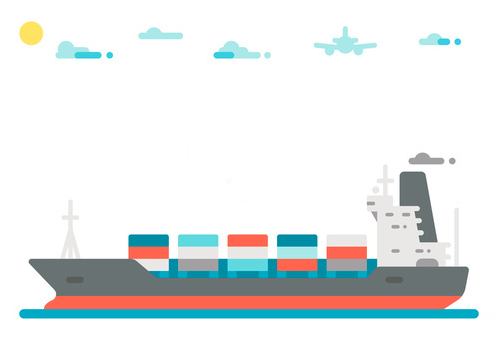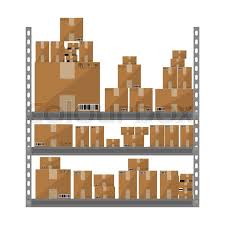Commonly used Incoterms by Amazon sellers (EXW, FOB/FCA, DDP and More)
Photo by Tobias Rademacher
I will attempt to break down confusing shipping terms used by the shipping industry to plain simple English for everyday Amazon sellers like you and I.
I have removed all the Jargons and complicated shipping speak in this article so you can just know what is required to get your goods shipped to Amazon FBA centers right away!
What are Incoterms?

Incoterms stands for International Commercial Terms, so it is like a contract between you the buyer and another party (Manufacturer, Freight forwarder etc.).
So these contracts do play a critical role when it comes to transferring contractual risks for the goods in question during international delivery.
If they are not applied correctly, you may be slapped with an unforeseen risk should damages or lost of goods occur in the delivery.
This, however do not extend anything related to insurance against piracy or accidents abroad vessels.
Commonly used Incoterms by Amazon sellers
There are a total of 11 incoterms and you do not need to know every single one of them. You just need to know these few for your Amazon FBA business.
These terms are used ONLY with your supplier. Do not be confused here.
Ex-Works (EXW)

This is what most manufacturers love to recommend to you because this simply means they make the product and leave it at their gate. (Sometimes really literally outside their gate exposed to the elements!)
This arrangement means you have to arrange for someone to pick up your goods at the factory’s location and handle the rest of the journey to Amazon FBA on your own. Usually, sellers will just hire a freight forwarder to settle this for them.
This is best for scenarios where you want to bundle products from multiple suppliers and you want to keep this project secret to the suppliers. But do note that doing through EXW means you will take full liability as soon as the product leaves the factory’s gate.
FOB or FCA

Both are rather similar with slight differences.
FOB stands for Free Onboard Vessel. It simply means the supplier has the responsibility to get your products out of their gates, clear the supplier’s country custom and onboard the ship.
Once the ship set sail for the destination (USA), the liability falls back to you. So you got to clear the destination’s custom (Paying USA’s custom duties and tariffs) and the final delivery from port to Amazon FBA center.
FCA stands for Free Carrier. It means that the supplier has the responsibility to just get your products out of their gates and at the gate of the port. They do not handle the supplier’s country custom and loading it onto the ship, that’s your responsibility.
If for some reason you choose this method, just go for FOB. It’s lesser risk for you.
Delivered Duty Paid (DDP)

This is my favorite as it puts full responsibility to the supplier for the entire shipping process. I highly recommend this if you are just starting out and unfamiliar with the shipping industry.
You just need to tell the supplier the final destination of your goods and they can give you a DDP quote. Most suppliers have bulk relationship with freight forwarders so they can do this, sometimes cheaper and more effectively than you.
I personally used DDP and I state it very clearly in my contract with the suppliers.
Tip: Do note that while all the risk is transferred to the supplier (Customs, Duties, tariffs), DDP does not cover for goods lost due to accidents or privacy. Only an insurance can help cover that. So do ask for one from the supplier and they can provide it.
Common Shipping Mistakes made by Amazon Sellers
- Fully going with what the supplier recommend. The supplier will have his/her interest and would likely not want to be involved in the shipping business. So most just recommend Ex Works and sellers go with it because it’s very cheap only to realize they have to prepare customs papers, clear duties, know the tariffs etc. Do your research before committing.
- Not knowing the correct address for DDP quotes. You need to know where is your goods coming from and where it should go to. If you get a quote without giving these 2 information, you can be sure they have used the worst case with marked up pricing.
- Not knowing what kind of tariffs you incur. Tariffs are the talk of the town nowadays, but they are not as bad as it seems. Ask for the HTS Code from your supplier and match that code to this directory to know how much is the tariffs slapped onto your product category.
- Failing to compare Air vs Sea DDP. While most of the time shipping by sea will be cheaper than air. If you are ordering lower quantities, it can be worthwhile to compare it with Air DDP. Sometimes it can be cheaper and faster with Air DDP.
Conclusion
Using the right incoterms is a crucial part of success in your Amazon FBA journey.
More experienced sellers can explore EXW in a bid to lower shipping cost, but generally I would recommend just sticking to DDP especially when you are just starting out.
Now that you are equipped with this Icoterm knowledge, you will reduce the shipping uncertainties and avoid getting ripped off for shipping.
Know your numbers and you have a business. It’s a discipline that you got to cultivate running your business like what the Hebrew culture excel in.
No discipline seems pleasant at the time, but painful. Later on, however, it produces a harvest of righteousness and peace for those who have been trained by it.
Hebrews 12:11 (NIV)
You got to be financially disciplined in your business and that includes researching and knowing your numbers down to the cents. In due season, you will surely reap.
Check out the Just One Dime Review, Proven Amazon Course Review for some of my course recommendations. Be sure to claim your 50% off Helium 10 Discount Code to aid you in your Amazon selling adventure today!
To your huge success!
